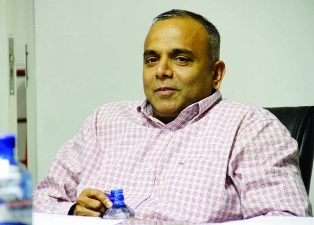
TREASURY should recapitalise the Central Mechanical Equipment Department (CMED) as the State-owned enterprise faces viability problems triggered by a ballooning intra-government debt, a workers’ committee official has said.
By Tarisai Mandizha, Business Reporter
CMED workers’ committee chairman Brian Bwawa yesterday told a Parliamentary Portfolio Committee on Transport and Infrastructural Development chaired by Kwekwe Central MP Blessing Chebundo, that government ministries owed the entity $14 million through non-payment of services.
He said recapitalising the entity was critical in replacing obsolete equipment.
“The shareholder should assist (CMED) in making sure that all relevant ministries getting service from CMED must pay,” CMED workers’ committee secretary-general Brian Bwawa said.
He said business had also slowed for CMED, as it emerged that some government ministries were servicing their fleet of vehicles at private companies.
“Recapitalisation is a critical issue to get the company running and this will also enable CMED to pay workers,” Bwawa said.
Bwawa added that CMED embarked on a voluntary retrenchment exercise in April 2012 and 104 workers were retrenched.
- Chamisa under fire over US$120K donation
- Mavhunga puts DeMbare into Chibuku quarterfinals
- Pension funds bet on Cabora Bassa oilfields
- Councils defy govt fire tender directive
Keep Reading
He said to date, 893 employees have remained out of the 997 employees.
“The voluntary retrenchment started in April 2012 after management had realised that the wage bill was way high above the generated revenue and ended December the same year,” said Bwawa.
He added that due to overwhelming response of employees for the programme, management accepted some applications and others were rejected.
“Packages of retirement were paid in batches and all those who were successful were paid their packages in full,” he said.
In his first quarter state-of-the-economy report, Finance minister Tendai Biti said Treasury had adopted austerity measures following a rapid growth in domestic debt.
“The stock of arrears to service providers stood at $146,6 million as at the end of December 2012.
“This is choking the economy to the extent of creating a debt gridlock where each organisation or parastatal owes the other, resulting in paralysis,” Biti added.










